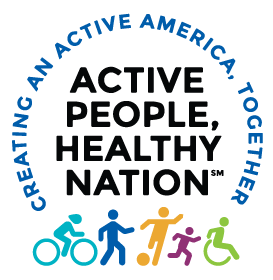Key points
- There are many ways to make physical activity part of a child's or adolescent's life.
- Children ages 6 to 17 need to be physically active for 60 minutes or more every day.
- There are three types of physical activity: aerobic, muscle-strengthening, and bone-strengthening.

What can I do to get—and keep—my child physically active?
Knowing the recommendations is a great place to start. Physical activities can range from informal, active play to organized sports.
Start early. Young children love to play and be physically active. Encouraging lots of safe and unstructured movement and play can help build a strong foundation for an active lifestyle.
Make physical activity fun. Fun activities can be anything your child enjoys, either structured or unstructured. Activities can range from team or individual sports to recreational activities, such as walking, running, skating, bicycling, swimming, playground activities, or free-time play.
Here are some ways you can do this:
- Make physical activity part of your family's daily routine by taking family walks or playing active games together.
- Give your children equipment that encourages physical activity.
- Take young people to places they can be physically active, such as public parks, community baseball fields, or basketball courts.
- Be positive about the physical activities in which your child participates. Encourage them to be interested in new activities.
- Instead of watching television after dinner, help your child find fun physical activities. Examples include walking, playing chase, or riding bikes.
Be safe! Always provide protective equipment such as helmets, wrist pads, or knee pads for physical activities such as riding bicycles or scooters, skateboarding, roller skating, and rock-wall climbing. Ensure that activities are appropriate for the age of your child.

Resource
How can my child meet the physical activity recommendations?
Many physical activities fall under more than one type of activity. This makes it possible for your child to do two or even three types of physical activity in one day! For example:
- If your daughter practices basketball with her team every day, she is doing vigorous-intensity aerobic and bone-strengthening activities.
- If your son takes gymnastics lessons, he is doing vigorous-intensity aerobic and muscle- and bone-strengthening activities.
It's easy to fit each type of activity into your child's schedule—all it takes is being familiar with the recommendations and finding physical activities your child enjoys.
School-based physical activity programs can also help children meet the recommended levels of daily physical activity. Find out how.
Also, learn tips for giving children a healthy body and mind when they are out of school for the summer.
What if my child has a disability?
Physical activity is important for all children. It's best to talk with a doctor before your child begins a physical activity routine. Try to get advice from a professional with experience in physical activity and disability. They can tell you more about the amounts and types of physical activity that are appropriate for your child's abilities. Learn more about special considerations for children and adolescents with disabilities.

Want additional tips and resources to be active?
Learn about Active People, Healthy NationSM, CDC’s national initiative to help people be more physically active.
